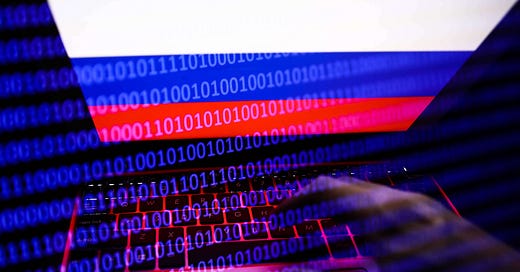Information War Between Ukraine and Russia – Putin’s Propaganda Seems Less and Less Effective.
Ukrainians and Westerners are fighting better and better against the Russian propaganda machine in the cyber arena.
The Russian propaganda would jam. In Ukraine, it would not have reached its objectives, according to a document “intercepted” at the beginning of June 2022 by the SBU, the Ukrainian intelligence service. This report would come from the FSB, the Russian service in charge of influence operations. Nothing proves the authenticity of the document, even if th…
Keep reading with a 7-day free trial
Subscribe to Sylvain Saurel’s Newsletter to keep reading this post and get 7 days of free access to the full post archives.




